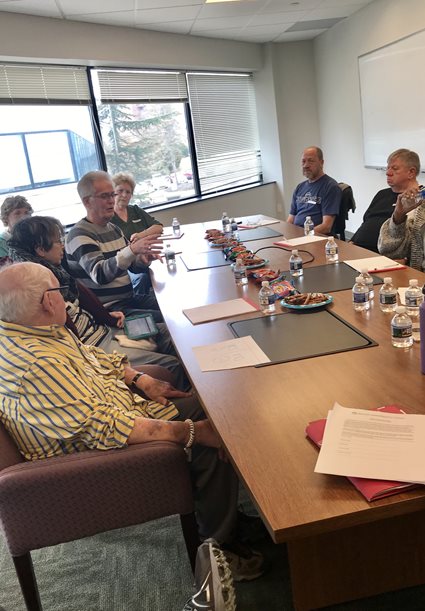Aphasia Awareness Month
 June is National Aphasia Awareness Month. Aphasia is a language impairment, which can affect your ability to speak, write and understand both verbal and written language. This disorder is always the result of a brain injury, most commonly from a stroke but it may also arise from head trauma, brain tumors or from infections.
June is National Aphasia Awareness Month. Aphasia is a language impairment, which can affect your ability to speak, write and understand both verbal and written language. This disorder is always the result of a brain injury, most commonly from a stroke but it may also arise from head trauma, brain tumors or from infections.
Aphasia can be severe making communication almost impossible, or it can be very mild. Symptoms may include the inability to retrieve the names of objects, difficulty in putting words together into sentences, or affect the ability to read. Aphasia can create numerous quality-of-life problems because communication is so much a part of your life. Communication difficulty may affect your job, relationships or day-to-day function.
The main treatment for aphasia is speech and language therapy. A speech-language pathologist (SLP) will provide activities to help improve the person's ability to communicate by restoring as much language as possible, teaching them how to compensate for lost language skills and in finding other methods of communicating. Treatments can be done in both individual and group settings.
Here are some tips on how to help communicate with someone who has aphasia:
- Try to get the individual’s attention before you start speaking and maintain eye contact the entire time.
- Try to avoid background noise and communicate simply and slowly to the person.
- Don’t talk down to someone with aphasia.
- Most importantly, encourage the individual to join in normal activities and to be independent whenever possible.
If you or a loved one is experiencing communication difficulties after a stroke or another traumatic brain injury, the Speech-Language Institute of Salus University has a team of trained speech-language pathologists that can help. The Speech-Language Institute also has an Aphasia Support Group – an affiliate of the National Aphasia Association - for adults that have had either a stroke or brain injury and have difficulty communicating.
Sign up for a support group here or call 215.780.3150.